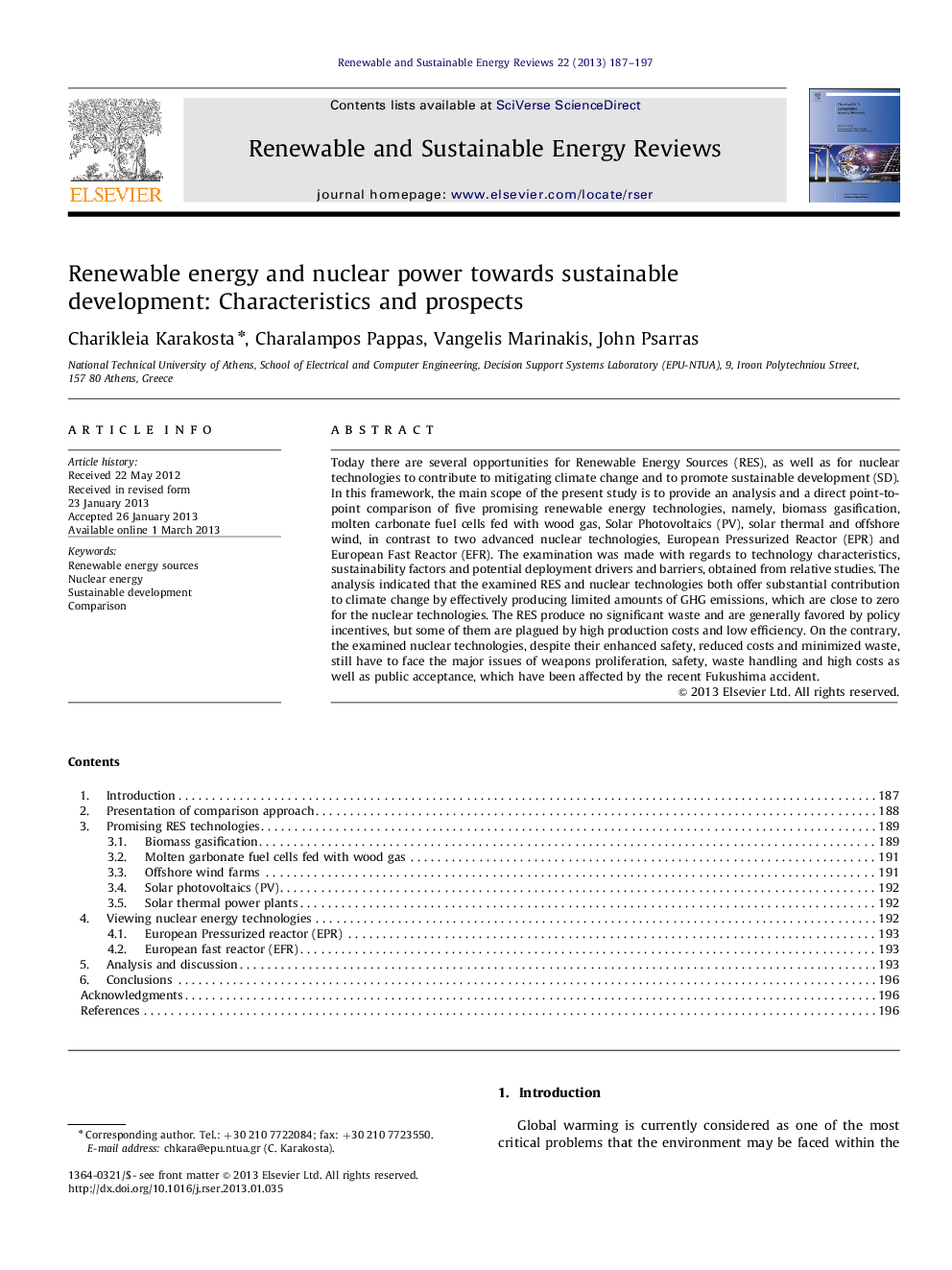| Article ID | Journal | Published Year | Pages | File Type |
|---|---|---|---|---|
| 8121995 | Renewable and Sustainable Energy Reviews | 2013 | 11 Pages |
Abstract
Today there are several opportunities for Renewable Energy Sources (RES), as well as for nuclear technologies to contribute to mitigating climate change and to promote sustainable development (SD). In this framework, the main scope of the present study is to provide an analysis and a direct point-to-point comparison of five promising renewable energy technologies, namely, biomass gasification, molten carbonate fuel cells fed with wood gas, Solar Photovoltaics (PV), solar thermal and offshore wind, in contrast to two advanced nuclear technologies, European Pressurized Reactor (EPR) and European Fast Reactor (EFR). The examination was made with regards to technology characteristics, sustainability factors and potential deployment drivers and barriers, obtained from relative studies. The analysis indicated that the examined RES and nuclear technologies both offer substantial contribution to climate change by effectively producing limited amounts of GHG emissions, which are close to zero for the nuclear technologies. The RES produce no significant waste and are generally favored by policy incentives, but some of them are plagued by high production costs and low efficiency. On the contrary, the examined nuclear technologies, despite their enhanced safety, reduced costs and minimized waste, still have to face the major issues of weapons proliferation, safety, waste handling and high costs as well as public acceptance, which have been affected by the recent Fukushima accident.
Related Topics
Physical Sciences and Engineering
Energy
Renewable Energy, Sustainability and the Environment
Authors
Charikleia Karakosta, Charalampos Pappas, Vangelis Marinakis, John Psarras,
